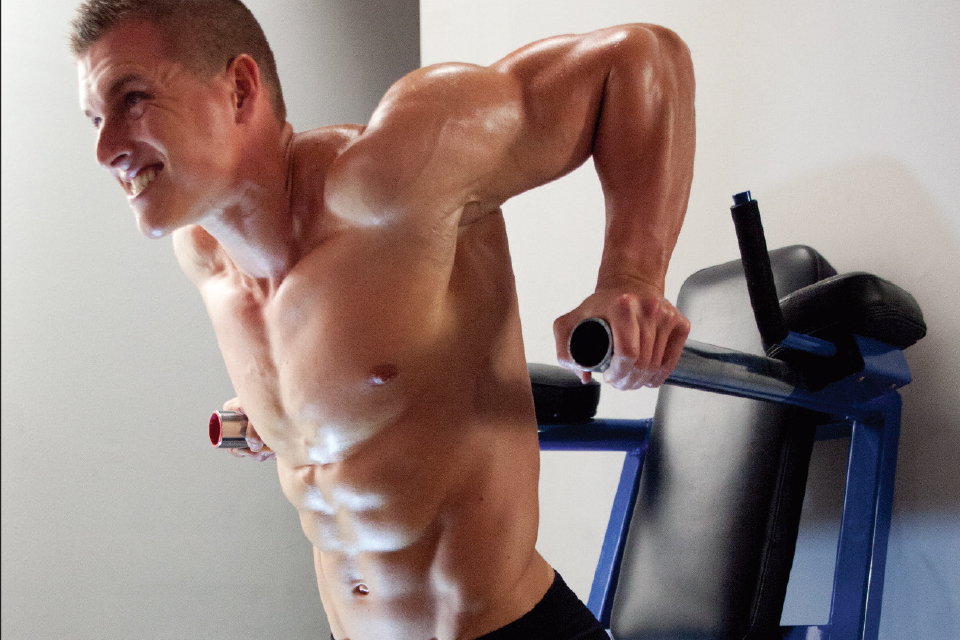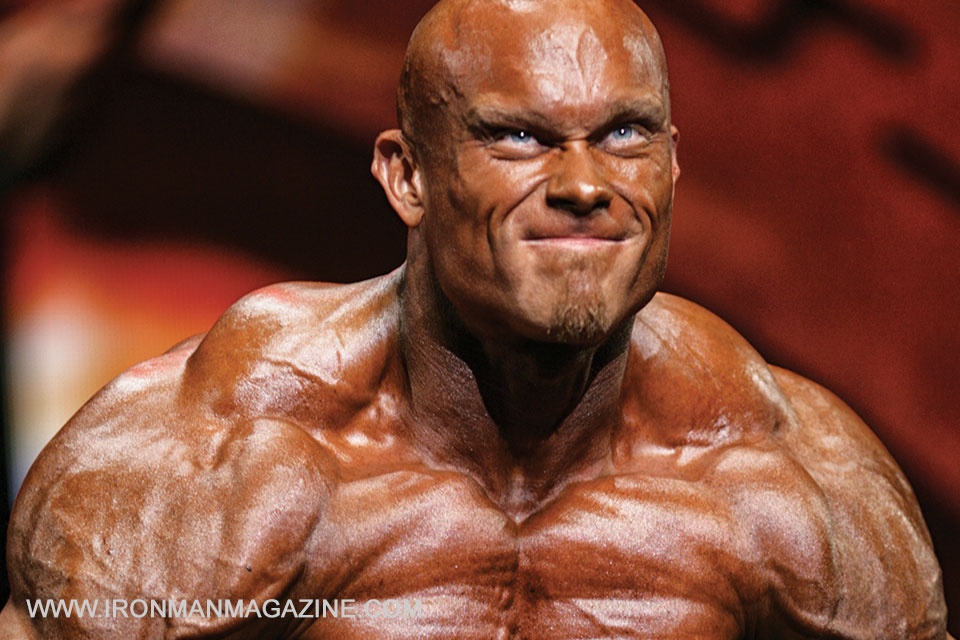

 We stand on the shoulders of our forefathers in bodybuilding, nutrition and science. Almost everything we know today must be credited to the work of those who came before us. Some theories stand the test of time; others, not so much.
We stand on the shoulders of our forefathers in bodybuilding, nutrition and science. Almost everything we know today must be credited to the work of those who came before us. Some theories stand the test of time; others, not so much.
Discarded theories and scientific failures are how our body of knowledge marches forward. When Thomas Edison was asked about his brilliant invention of the light bulb, he modestly stated that he had “succeeded in proving 10,000 ways in which light bulbs will not work” prior to getting it right.
While they have been shown elsewhere to be false, throwback nutritional theories from past decades stubbornly persist in bodybuilding. So turn off your eight-track, put on your favorite Sergio Tacchini velour tracksuit, gas up the AMC Gremlin, and let’s go for a ride.
Throwback theory 1. “Muscles are 70 (or whatever) percent water, so don’t dehydrate for your show—you will be small and smooth…blah, blah, blah.…” Oh, where to begin?
This one reminds me of that Richard Pryor routine in which his wife finds him in bed with another woman, and Pryor cries out, “Who you gonna believe, bitch? Me or your lying eyes?”
Bodybuilding is a visual sport. Everyone’s physique looks better in a dehydrated state when onstage under bright lights. The degree of dehydration depends on the amount of muscle individuals have, how well they can carb up without spilling (an art that very few master) and how lean they are. Granted, they will lose a drop of size with the water, but they’ll more than make up for it with grainy striations and detail. On balance, they will look far more granitelike. I acknowledge the possibility that someone could lose an infinitesimal amount of vascularity due to drying out—although it’s never, ever happened to me or to any athletes I’ve coached. Besides, a bunch of veins standing out on an otherwise smooth physique will not look impressive onstage.
I have coached or constructed diets for several Mr. Olympia finalists, other IFBB pros and scores of natural and “supernatural” competitors. Everyone who dries out properly looks better. Dehydrating involves water restriction and switching to distilled water; restricting sodium alone is not going to get you there.
Throwback theory 2. Since we’re on the topic of hydration, how about this one: “Incrementally reduce water three, four or five days prior to a show so you dry out gradually and not shock your system.” Sorry, that’s just not reliable. The body is very efficient at keeping water in balance. Our genetic ancestors’ lives depended on it. You need to fool your body quickly and abruptly.
Additionally, you need to be reasonably hydrated so you can carb up properly. Almost nobody in the bodybuilding world knows that. So, if you begin drying out at the same time you begin to carb up, expect to carb up poorly. Ever wonder why seasoned pros have such a high incidence of “missing their peak” for shows? In addition to not being in shape, at times it’s due to bad carb-ups and dry-outs.
Throwback theory 3. “Bikini competitors need to carb up.” Unless a truly undersized, frailly structured girl is involved, what’s the point? The goal is to be lean and streamlined without retaining subcutaneous water. The heaviest things they’re lifting on contest day are their implants. Muscle fullness is not normally an issue.
Play it safe, and don’t risk weeks of hard work with a silly mistake that defies common sense. Ladies, if your coaches learned their craft exclusively from bodybuilding and they want to apply every one of those theories to you, walk away. As an aside, if you are a bikini competitor who is not getting lean and someone has you on six meals a day, your coach does not know modern theories of weight loss—another throwback move.
Throwback theory 4. “Carbs are the body’s preferred fuel [for athletic or otherwise].” I may cause a backlash here, but I can take the heat. For all the registered dieticians, faculty-lounge theorists and nutritionists who are using 20th-century hypotheses in the 21st century, your fortune cookie message should read as follows: “Carbohydrates are the preferred fuel of the body and brain in the presence of overly plentiful and frequent carbohydrate consumption.”
Make no mistake. I do not advocate bodybuilders or any athletes being on a low-carb diet year-around. I just believe that there’s a general overconsumption of carbs by bodybuilders, especially in the off-season. It doesn’t help their health, endurance, recovery, gains or physique.
Let’s pretend for a moment that we put together a diet of vodka, protein and fat (sadly that has probably occurred). Alcohol, if sufficiently plentiful, will be the preferred fuel source before the fat is used. I can picture the Grey Goose and whey shakes being blended as I write this. Just because the body preferentially uses a substrate doesn’t mean it’s beneficial or productive to do so.
I kind of like the concept of my body running on a blend of fats and carbs. If I’m late for a meal, I don’t turn into a hypoglycemic zombie, a.k.a. victim of low blood sugar. That, by the way, is among the most catabolic states a person can encounter. Hypoglycemia will also blow those abundant glycogen stores that you were so cleverly accumulating on your carb-dominant diet.
Following a moderate-carb diet, with plenty of healthful fats, in the off-season will give you a more sustained energy level through long, grueling workouts. You’ll be leaner and healthier and will have more solid gains than the high-carbs folks, with better hormone levels as a bonus. Just do a Google search for “glycation” or “high-carb diets raising LDLs and triglycerides” or “metabolic syndrome.” High-carb diets, even in athletes, will eventually affect the body adversely. Part of being a holistic nutritionist is that I want you to be healthy enough to be doing sets and reps for decades to come.
Let’s deal with the concept that “carbs are protein sparing.” The throwback nutritionists love to shout it from the rooftops, but let’s review the facts.
Carbs do in fact spare protein from being used to produce glucose, but it’s conditional and not always as wonderful as some would have you believe. The body can use protein to produce glucose when it is deprived of carbohydrates, but it can also use fatty acids. Funny that we never hear about that.
Further, when you are trying to get really lean, it’s a fantastic metabolic state for your body to be making some glucose out of protein. Gluconeogenesis is a hugely inefficient process that takes enormous amount of energy, and, therefore, uses a lot of calories to accomplish. Calories used in the right hormonal state means fat loss. As long as you take in one to 1 1/2 grams of protein per pound of lean muscle mass, you will have plenty of protein left for growth and repair.
Not surprisingly, your body will look to turn noncarbohydrate sources of macronutrients into glucose more desperately when it is accustomed to running on glucose all the time. As I stated above, I (and my athletes) run on a blend of fats and carbs most of the year, so when we pull the plug on a lot of the carbs to get superlean, our bodies still have all the familiar fuel they need. Our low-carb diets are more tolerable than you may believe.
Finally, here is a new one for the bodybuilding world: Fat is carbohydrate sparing. That can be the subject of a whole series of articles, but let’s just say that I get more energy out of my off-season carb intake of approximately 250 grams (not counting veggies) than a 500-to-600-gram-a-day guy who’s on not getting enough healthful fats. In previous columns I’ve gone into detail about the fats that I consider healthful.
Next month I’ll have more on my tribute to Throwback Thursday in the world of muscle.
—Ron Noreman
Editor’s note: Ron Noreman (RonNoreman.com) is a partner at Kamler, Lewis & Noreman LLP (KLNcpas.com), a certified public accounting firm that specializes in tax representation and management of professional athletes, nutritional-supplement companies and weight-training-equipment manufacturers. He has been a competitive bodybuilder for 35 years and has won numerous titles. He’s also the founder of Alchemy Nutrition and offers contest-prep coaching and holistic-nutrition consultations. In addition, he has formulated antioxidant supplements for prominent vitamin companies and served as a design consultant to Nebula and other equipment manufacturers.






















You must be logged in to post a comment Login